LDAC, aptX, AAC... What's the best Bluetooth audio codec?
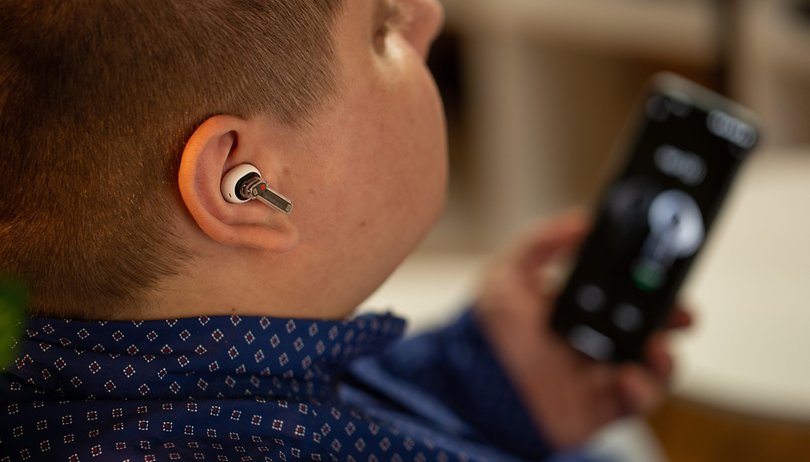

In headphone tests, you constantly read that the model does not support AptX and do not know what that means? Then you have come to the right place! nextpit explains the most important differences between the modern Bluetooth codecs used by different headsets and mobile phones.
The Bluetooth wireless standard has revolutionized the world of headphones. Cables are now more likely to be found in high-quality hi-fi setups or on cheap headsets that come with new smartphones. In order to transfer music via Bluetooth, however, the data packets must be compressed in the mobile phone and then unpacked again.
Audio glossary for this article
| Term | Application | Explanation |
|---|---|---|
| Sampling depth | The codec supports sampling depths up to 24-bit. | The "resolution" of sound data that is stored in files. The more, the better! |
| Sampling rate | The sampling rate is 48 kilohertz (48,000 hertz, i.e. 48,000 times per second). | The frequency with which an analog signal is transmitted. |
| Data rate | The codec reaches 345 kilobits per second. | The amount of data transmitted per second. |
| Latency | The latency is 200 milliseconds. | The delay(lag) that occurs between signal transmission and signal output. |
This is precisely the point where opinions differ on current Bluetooth headsets. Depending on the audio codec, this compression and decompression can be lossless or result in a considerable loss of quality. To help you estimate how loss-free the connection will be when you buy new headphones, we explain below the most important Bluetooth codecs for you. These are:
Bluetooth transmission standards are complex, and since I want to keep this article understandable for as many readers as possible, I'll focus on the most important advantages and disadvantages. But feel free to discuss the details in the comments!
SBC
The SBC audio codec stands for "Low Complexity Subband Codec" and is basically the bare minimum among codecs. It is usually found in cheap headphones as it can be used without a license. The codec is part of the Advanced Audio Distribution Profile (A2DP). Although SBC is widely used, its compression causes noticeable quality losses.
SBC achieves a maximum of 320 kilobits per second at 48 kilohertz for wireless connections. Therefore, the codec is not suitable for music streaming. Another disadvantage of SBC is that the connection quality can drop more easily. If a headset only offers the SBC format, this is usually a sign that the sound quality is not the best.
AptX (HD)
If you find a logo for AptX or even AptX HD on the packaging of a pair of headphones, you can rest assured. The audio codec was developed by Qualcomm and the name stands for "Audio Processing Technology". It is characterized by higher bit rates and above all lower latency.
In the HD version, aptX supports up to 24-bit resolution, the maximum bit rate is 567 kilobits per second at a sampling rate of 48 kilohertz. AptX without HD offers a maximum of 384 kilobits per second at 48 kilohertz and a sampling depth of 16-bit.
While the latency of the AptX HD and AptX is between 170 and 270 milliseconds, Qualcomm still has a trick up its sleeve: the AptX LL, which stands for "Low Latency," achieves low latencies of up to 40 milliseconds. This is a real advantage, especially for gaming headsets or musical instruments.
Regarding mobile phones, a big problem with AptX is that Apple does not support this codec. So if you connect AptX HD headphones to an iPhone, you won't have any practical advantage. However, since AptX is backward compatible with SBC, you can still use the device.
AptX Lossless
Announced by Qualcomm in September 2021, the AptX Lossless codec promises lossless audio streams with CD-standard quality. While not equivalent to Hi-Fi/HiRes formats, as it offers 44.1 KHz at 16-bit, the company positions the new format as ideal for premium audio streaming services.
A recurring problem when talking about codecs, AptX Lossless requires support in both mobile and headset to kick in, but with no expectation of compatibility with the iPhone family.
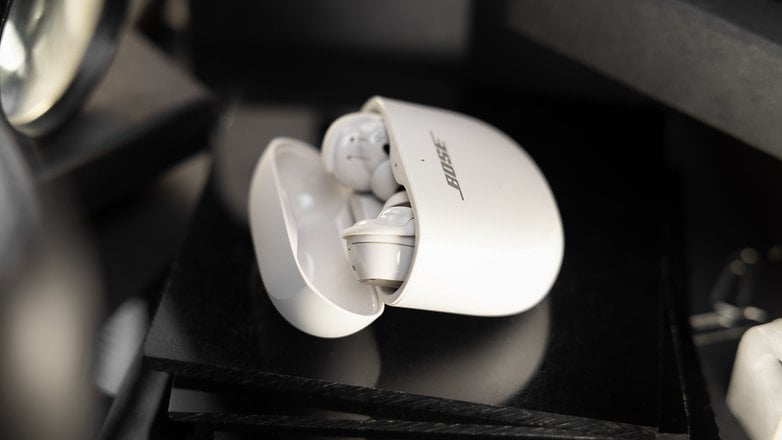
AptX Low Latency
AptX Low Latency is another upgrade to the basic aptX standard from Qualcomm. As the name suggests, the codec prioritizes lower-latency audio transmission, with an approximately 40 ms delay. The extension is aimed at serious gaming and solving issues with lip synchronization.
AptX Adaptive
With AptX Adaptive, Qualcomm offers a sort of successor to AptX. As the name suggests, the codec is flexible and can switch between the advantages of the various AptX standards. It also offers a low latency mode which is especially suitable for mobile games and movies.
If low latency is not so important, AptX Adaptive achieves very high bit rates of 279 kilobits per second to 420 kilobits per second. Qualcomm specifies latency at just 80 milliseconds. In addition, AptX Adaptive is backward compatible with aptX and aptX HD. So if your device already supports AptX Adaptive, but your headphones only support AptX HD, you can still take advantage of AptX HD.
LDAC
If you want to further reduce losses when streaming music wirelessly, you should pay attention to the Bluetooth LDAC codec. LDAC was developed by Sony and can be found in current headphones such as the Sony WF-1000XM4 or the Sony WH-1000XM4. The codec offers a maximum of 990 kilobits per second with a sampling depth of up to 32-bit at 96 kilohertz.
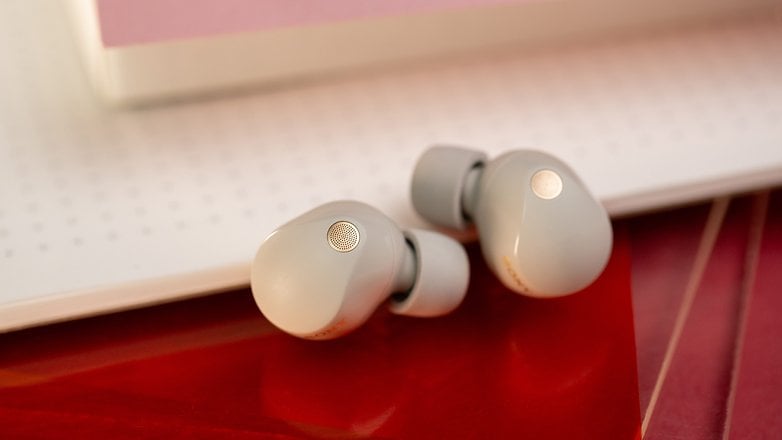
Since LDAC has been part of AOSP (Android Open Source Project) since Android 8.0, a large number of devices support the standard. If your headphones are compatible, you can find the HD quality option via LDAC in your phone's Bluetooth settings. However, the default bitrate for devices is not specified. In this case, you have to go to Android developer settings to adjust it on your device.
As you may have already noticed: Again, you won't benefit from LDAC-compatible headphones if you use an Apple device. But we will cover the best audio codec for iPhone owners later in this article.
LHDC
The LHDC codec is another standard with high bitrates. In theory, it has been ready since Android 10 to be integrated into system interfaces by software developers. In practice, however, LHDC support is not as widespread. Here's an example:
The OnePlus Buds Pro supports the LHDC standard and, in combination with the OnePlus 9 and OnePlus 9 Pro, offers better sound quality than many other Android phones. However, although the flagship line is compatible, OnePlus doesn't extend the support to its entire product range, which means cheaper models like the OnePlus Nord 2 don't feature the new feature.
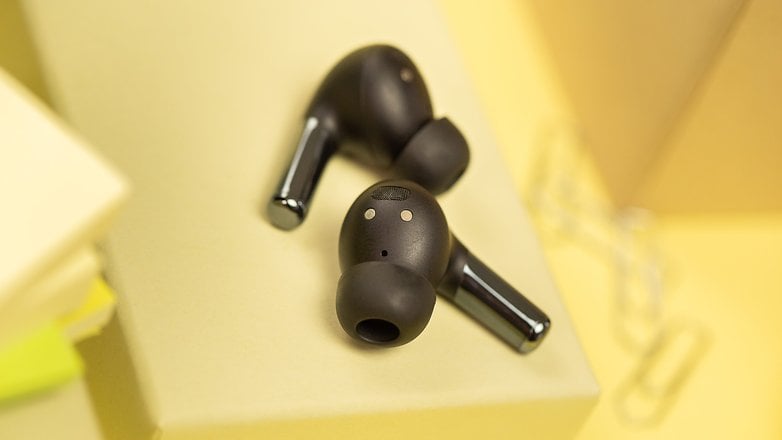
While LHDC is technically impressive, with bit rates of up to 900 kilobits per second in 24-bit definition and sampling rates of 96 kilohertz, the standard simply hasn't caught on. Not even after a few manufacturers partnered in September 2018, including premium audio brands like Sennheiser, Audio-Technica, and Edifier, chipmaker Cirrus Logic, LDA, and mobile phone maker Huawei.
AAC
The abbreviation AAC stands for "Advanced Audio Codec" and describes an audio codec that is the standard on iPhones and iPads. However, this doesn't mean that Android devices or laptops don't also support the standard. While the technical side with 320 kilobits per second at 24-bit and 96 kilohertz doesn't sound particularly impressive, the quality of AAC is very interesting overall.
This is because AAC's file transfer is based on psychoacoustic models that consider at the time of compression what people can hear. Since this requires more processing power and power management works differently between Android and iOS, AAC provides better sound quality on your iPhone.
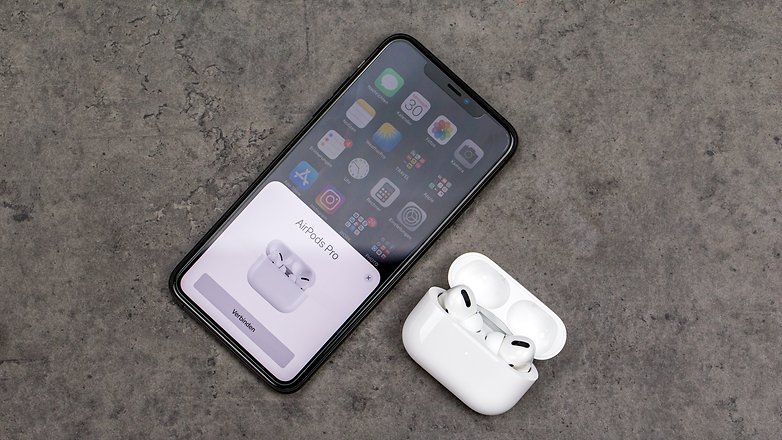
As the Soundguys website explains, AAC-compatible headphones are a clear recommendation for iOS device owners. For example, you can buy the Bose Noise Cancelling Headphones 700! As the quality under Android depends on many factors, you should pay more attention to the previous codecs if you don't have or intend to buy an iPhone.
LC3
Since Bluetooth 5.2, there is another new audio codec, LC3, which is still niche. However, I would like to include it in this article as it is basically the successor to the SBC codec. As Bluetooth.com illustrates in a video, LC3 can maintain higher audio quality at a lower sample rate.
However, LC3 is not really widespread yet and is currently more of an interesting promise for audio geeks.
Bluetooth LE Audio
LC3 is part of the Bluetooth LE Audio specifications, announced back in 2020, which retroactively renamed the original audio features in Bluetooth to "Classic Audio". Besides the new codec, Bluetooth LE also incorporates new features such as:
- Multi-Stream Audio - MSA, for multiple synchronized audio streams between the source and playback device.
- Hearing aids support - Better support and standardization for hearing aids.
- Auracast Broadcast Audio - An option for public spaces to offer an audio stream that can be listened to by multiple visitors.
Now that we have dealt with the most important codecs, the conclusion deals with the question of what is the "best" audio codec.
Conclusion: is there a "best" audio codec?
In the world of technology, there is always a battle for "best". Complex relationships are often broken down and compared based on numbers. But just as a 108-megapixel camera doesn't necessarily provide "better" images than a 12 MP sensor, the same applies to Bluetooth codecs.
If you want to listen to a premium streaming service with as little loss as possible, LDAC might be a good choice. However, you will only enjoy the benefits if you have an Android device and may even have to change something in the settings. The AptX HD is considered a good balance between distribution and compression, but again the Apple loyalist audience is left out.
In summary, before dismissing a headset for not supporting a certain audio codec, it's best to try them out in practice or read reviews from those who have tested the headphones, like the ones you can find on nextpit. Seeking more sound quality always means taking a holistic view. And that's where audio codecs play an important role, but not the only one.
Article updated in February 2024 with new codecs and a feature list for Bluetooth LE Audio.






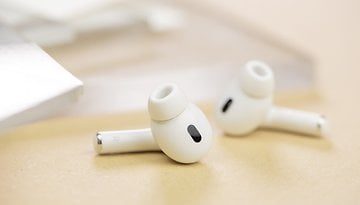

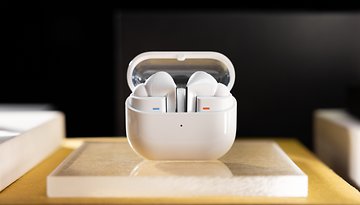
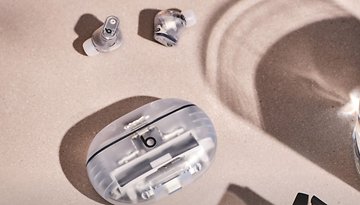

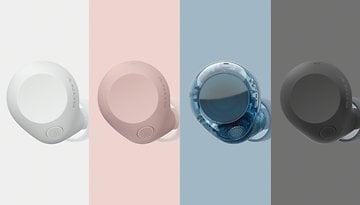



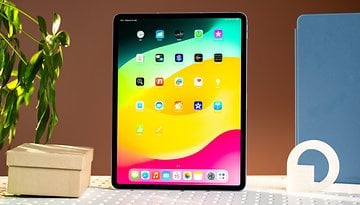
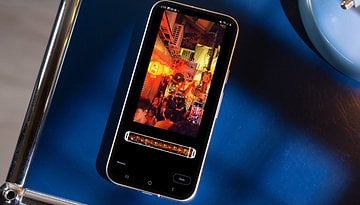


Feels like you missed out on one codec that makes ahige difference compared to the license options, Opus that Google added. For now only the Pixel Buds Pro support it but it's a breath of fresh air, open source and freeware.
Is there a difference between the AAC codec used by aple and sony's LDAC is it worth replacing my aple 7 plus phone with android am I connecting to marant Dec hifi with cloud, thank you in advance for your answer
-
Admin
-
Staff
May 8, 2022 Link to commentWe don't think it is worth changing phones just because of codec support.
Theoretically, ldac is superior, but you need to consider which devices you are going to use it with.
I'm connecting to hifi via 1MIIDS200 Pro, I'm only connecting from spotify, for this, if I connect an LDAC-supported android phone, would there be an auditory difference
-
Admin
-
Staff
May 8, 2022 Link to commentIt seems possible to notice differences, but that would depend also on the quality of cables (analog or digital) used to connect with the Marantz.
I'm connecting via an optical output thank you very much for taking the time and answering, good luck with your work.
Hi rubens good evening I don't know where you are right now in turkey I have another question that sticks in my mind if you have information I would like to use you said that cable quality is important for copper ofc cables I agree with you, but the same criteria apply to optical cable I respect.
-
Admin
-
Staff
May 9, 2022 Link to commentFor digital cables, it either works or doesn't work, basically.
Optical cables can't alter the sound quality, indeed.
As I thought, thank you very much, I would like to buy you a coffee in Istanbul, respect if you fall down the road
Actually, LDAC’s maximum resolution is 32-bit, 96 kHz.
-
Admin
-
Staff
Feb 23, 2022 Link to commentThanks for your correction!
aple tarafından kullanılan AAC codec bileşeni ile Sony'nin LDAC'si arasında bir fark var mı aple 7 plus telefonumu android ile değiştirmeye değer mi marant Dec hifi'ye Bluetooth ile bağlanıyorum, cevabınız için şimdiden teşekkür ederim
Using (192-32 or 32-192 I'm not too sure which way these should be stated) as my base music on an NAS I find this whole thing too confusing, still at 70 I guess that is default for the oldies among us.
I would say though that I prefer the LDAC result in my Bluetooth headphones from my source.
It's about how it sounds to the listener, never mind all the infighting, if it sounds good to you then stick with it.
Actually, it's Android users who have it bad because changes to the settings reset once the Bluetooth device disconnects.
There's a locked thread on the Google support site from 2020, clearly, they don't care.
Which means that on many Android devices, one can only choose between LDAC at 330 kbit (because that's what Android usually picks) and SBC. Because there's only the general toggle for LDAC in the Bluetooth device settings that sticks.
Since I joined the hearing aid crowd, i've dumped my headphones. The overall fidelity is weak in comparison, but the other features make it worthwhile for my particular needs.
I've kept one wired pair for use with my DAC amp and no hearing aids. Mostly for travel purposes, but on phone guided tours, the hearing aids will win out.
I'm looking forward to implantable chips in the style of Neuralink to restore real sound sometime soon
I decided against BT headphones and bought a BT headphone amp running 5 different codecs, LDAC being one of them, so it now runs that exclusively. I found this article extremely helpful in choosing the right codec for me. I don't know if there's any BT amp vs BT headphone tests out there but it's something to consider when plunging into the BT pool.
AAC is in fact not a power-hungry codec. Being part of the MPEG standards, practically everything out there has very power-efficient hardware decoding of the format. Additionally, if using a good AAC encoder (such as Apple's Core Audio) it reaches transparent quality to any human ear already at 192 kbps.
you are pretty dumb if you think the human ear can only detect 192kbps. that is less than MP3 quality. 192kbps is very far from "transparent quality". you need to stop sucking the teat of a corporation that doesn't care about you. they literally sell your data to advertisers and openly admit it in their privacy policy.
That's not what was said at all, sir. What he implies is that most audio - music in this case - does not require an audio stream exceeding or even reaching 192kbps to be listened to properly.
I'd take a step back and read twice in future before attacking someone from your keyboard over your misinterpretations.
Yes, that IS what Mr. Mono explicitly said. Give yourself Mr. Drapper the reprimand. And DO NOT reinterpret an adjective "so eloquent" (transparency) to falsify / adapt / lie about the position of the person who wrote it.
DON'T forget that there is already a term to pass the sign '' untouched '' '' passthrouth ''. That would be the one that this Mr., unintentionally (probably due to technical ignorance), is the one who is jumping into the bullfighting. Just the one that most closely resembles "transparency"; '' pass WITHOUT touching / tampering / manipulating .. '' 'passing the signal transparently'.
But never, ever, act in such a mediocre way to overlook something so technically insulting, such as taking for good, which is the same, or it does not matter, applying a mediocre understanding (AAC 192K), than treating that as ... '' good / excellent audio '' transparent / pure / original / .. '' '' for what '' any human ear '' is capable of interpreting.
Maybe what you meant is that a 'Mr. A' calls another 'Mr. B' with a qualifier such as: '' fool, donkey, exaggerated, talerdo, ... '' He does not like it . But it is what is '' self-described '' '' anyone '' who had written those words in '' this post '' of '' this community '' technical ''.
Since you have to be a NON-technical in this matter to write that data and stay ... 'so hot' (I INSIST; in a post from a community explicitly TECH-NI-CAL).
'This Mr.' simply does NOT have '' EAR training ''. Perhaps like a good part of the younger population. Since '' everything '' they have '' passed and transferred '' from ... '' those forms '', and consumed by '' QUANTITY '' rather than by '' QUALITY ''. Hence, I suppose (and I want to think), his inexperience and daring to adjective such barbarity ('transparent quality').
The 'sufficiency' is NOT 'the ALL', it is NOT 'QUALITY', it is ... the MINIMUM, the LOWEST, to take into account something like the supposed '' MINIMUM quality of UNDERSTANDING '' which 'affects LITTLE '(but it affects and it shows) the sound spectrum, depth of field, spatiality and instrumental positioning and their voices, reverberation, wheezing, shrillness, ...
If you DON'T know .. DON'T expose yourself. And if you expose yourself publicly ... accept the good consequences. and bad.
And what this Mr. Mono dropped under the AAC codec by giving two explicit data; In the framework of '' energy consumption '' and '' transparent quality '' to '' 192kbs '', it is that it has NO references OR auditory training, for what it expressed as meaning 'transparent' in terms of audio or ... that, himself, he passed from ... '' poet ''.
(traducido por google)